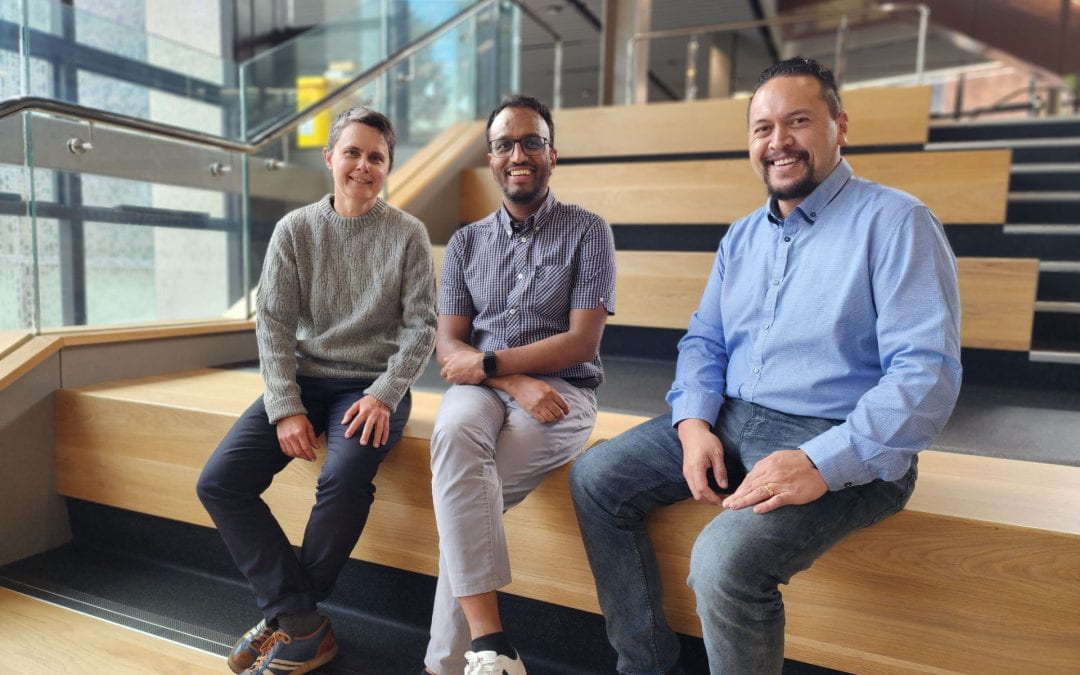
Q&A with Deepa Kumar : Master of Health Science

Deepa Kumar
Master's graduate
Deepa is an Optometrist and Clinical Team Leader at Counties Manukau Ophthalmology District Health Board. In 2020, she returned to The University of Auckland to complete her Master’s in Health Science with A/Prof Jacqueline Ramke in the Community Eye Health Team.
Now a Master’s graduate, Deepa reflects on what’s involved in postgraduate study and how she has applied her research experience in public health to her clinical work.
Thesis: Non-attendance at diabetic retinopathy screening in South Auckland.
“One thing I would recommend is selecting a project topic that you’re passionate about—something that resonates with your professional interests and goals.”
Why did you decide to do a Masters?
I wanted to deepen my understanding of research and public health. I saw it as a chance to develop research skills that could help improve patient outcomes, influence healthcare policy, and address gaps in service, especially in underserved areas like South Auckland.
Can you tell us about your Masters project topic?
My Master’s thesis focused on the non-attendance at Diabetes Eye Services in South Auckland and the impact of COVID-19. Specifically, I wanted to understand the factors that led to patients missing their scheduled eye exams for diabetic retinopathy screening and diabetic eye assessments within a tertiary ophthalmology setting over a two-year period including during the Covid 19 pandemic.
My research showed that age, ethnicity, and socioeconomic status were associated with non-attendance at diabetic retinopathy screening services, and that Covid restrictions during this time presented additional barriers for diabetic patients.
I chose this topic because diabetic retinopathy is a leading cause of blindness in people with diabetes, and South Auckland has a higher proportion of people from ethnic groups at greater risk of both diabetes and related eye complications.
What were the highlights of doing your Masters?
One of the biggest highlights of doing my Master’s was the opportunity to conduct research that could potentially make a real difference in patient attendance and hence patient care and outcomes.
Another highlight was the satisfaction of analysing data and uncovering patterns that could inform practical interventions. The process of collecting data, interpreting it, and then seeing the findings contribute to a deeper understanding of the problem was intellectually fulfilling.
I also appreciated the chance to develop stronger research, writing, statistical analysis, and critical thinking skills.
How has the experience you gained during your Masters contributed to your work?
The experience I gained during my Master’s has greatly influenced my work. The research process honed my ability to critically assess healthcare problems and solutions, which has been of great help in my clinical role at Counties Manukau. I now feel more confident in understanding and evaluating the health disparities that exist within different patient populations. This has helped me better communicate with my patients, especially in communities with high rates of diabetes, where education about eye care and screening is crucial. Additionally, the data analysis skills I developed during my research has helped in a recent clinic audit.
What advice would you give other optometrists thinking about doing a Masters?
My advice would be to approach the decision with clear goals in mind. The Master’s journey can be intense, and it’s important to have a clear understanding of what you want to achieve.
Going back to study (while working) was challenging but achievable, and ultimately very rewarding. You have to balance work and study, so it helps if you’re organized and set realistic expectations for yourself. I found that planning ahead and dedicating specific times to study made a huge difference. However, it’s also important to have support from family, colleagues, and supervisors.
One thing I would recommend is selecting a project topic that you’re passionate about—something that resonates with your professional interests and goals. Having a personal connection to your research will make the process more enjoyable and meaningful. It requires dedication and the ability to balance your professional and personal commitments.







 In May 2023, Renata Watene was honoured as the first International Keynote Speaker at the prestigious
In May 2023, Renata Watene was honoured as the first International Keynote Speaker at the prestigious 
